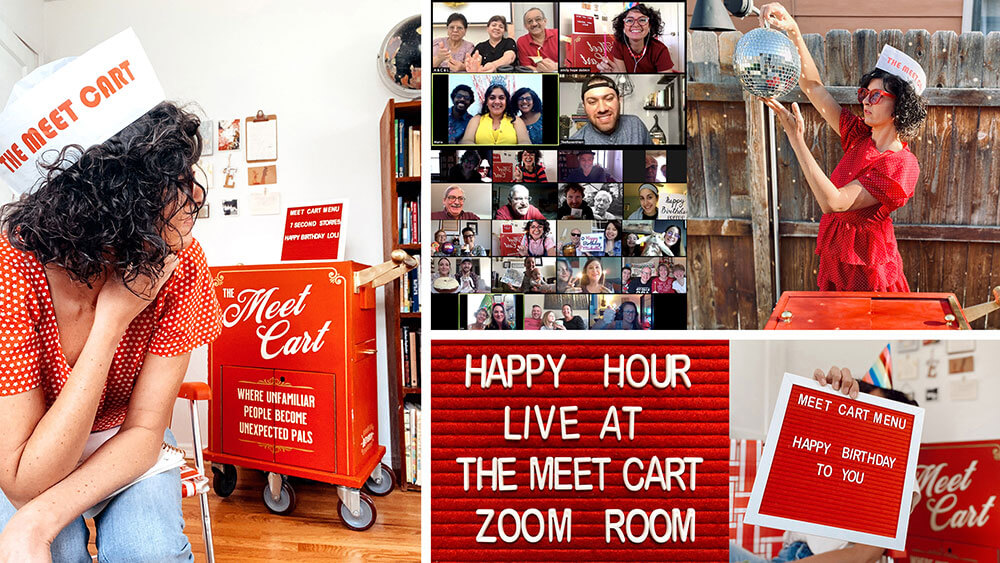
Meet Cart maven Emily Hope Dobkin, founder of a company called Betterish, brings people together by having them share their stories in online sessions.
Emily Hope Dobkin is the creator of the “Meet Cart,” an actual cart that Dobkin once wheeled around Denver as a prop at the pop-up events and hands-on workshops that she presented at festivals and other events and venues. A one-time arts educator, last year Dobkin founded a company called Betterish, which brings diverse groups of strangers together to share their stories. “Everyone you meet,” she says, “has something valuable to teach us.”
The pandemic put a halt to Dobkin’s mobile cart, but not to her efforts to connect strangers. “Amidst the pandemic, though we are finding new ways to connect with friends and family,” Dobkin said, “we’re not able to connect to new, fresh faces.” That matters, because research shows that our interactions with strangers create what sociologists call “fleeting intimacy,” and that people often are more open about their inner selves with strangers than they are with their friends and families.

Emily Hope Dobkin once wheeled around the Meet Cart in Denver as a prop at the pop-up events and hands-on workshops that she presented.
Her message resonates with me. The Zoom gatherings, Facetime sessions, group texts, and calls I share with my family and friends have kept me sane over the last six months. But I miss the influx of energy and ideas once shared with me by the people I meet when I travel to other cities or just around my neighborhood.
So when Dobkin offered a session called “When Unfamiliar People Become Unexpected Pals: Building Community With Strangers at the Virtual Meet Cart,” I signed up. Dobkin’s presentation was part of a series of free Virtual Field Trips, an offshoot of the monthly, global in-person talks organized around the world by Creative Mornings, a Brooklyn-based nonprofit founded as a networking platform for the creative community.
I wondered how Dobkin could create a sense of intimacy, especially in such a large group — the field trips attract hundreds of global participants. Her answer is to use Zoom’s breakout groups and a game called “Seven-Second Stories.” Dobkin asked us in advance to come prepared with pens and squares of paper, and then gave us a series of prompts, such as “Draw something you see that you like,” and “Here’s what the quarantine has been teaching me.” She set a timer and gave us the hilariously impossible task of sketching out our responses in seven seconds. And then she divided us into breakout groups to talk about our drawings.
The exercise is less about drawing and more about sparking conversations, Dobkin said. Over the course of an hour, her prompts became more personal and our conversations more powerful. I heard at least a dozen stories that night about the ways in which people are responding to the pandemic, and, in many cases, making meaning out of it.
How To Participate
Dobkin organizes virtual ‘Meet Cart’ sessions on Mondays at the Betterish website. This summer, Dobkin has used them to hold space to talk about racism; after a summer break, the sessions will resume Sept. 21. She also facilitates “Seven-Second Stories” for virtual happy hours and celebrations.
Barbara Palmer is deputy editor at Convene.
This story is part of Convene‘s September CMP Series package on ways the world has changed since COVID-19 and what we hope will stick once the pandemic is behind us.
